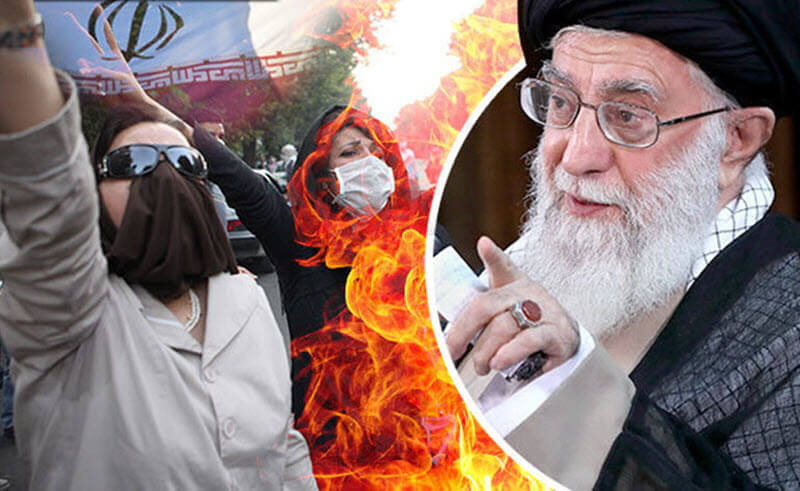1. Freedom for the Iranian People
The Iranian people are currently on the streets throughout the country to tell the world, once again, that they want to topple the Islamic regime after 43 years. Led by Iran’s women, the current movement underscores the lack of basic human rights, particularly for Iran’s girls and women who are fighting on the frontlines, demonstrating, burning their hijabs and demonstrating tremendous courage in the face of Islamic authorities. Iranians are being executed for peacefully protesting, similar to the way journalists, dancers, musicians, poets and political dissidents have been arrested and executed over the last four decades, merely for expressing themselves.
2. Reduction of Radical Islamism
After coming into power in 1979, Ayatollah Ruhollah Khomeini and his supporters began a campaign to spread the Islamic Revolution across the Middle East and the world, propping up terrorist proxies and radical Islamic fanatics to attack Western countries and Israel. The Islamic Revolutionary Guards Corps has supported various groups in the Middle East and Latin America, providing military resources, training, and shelter for groups like Al Qaeda, Hamas, Hezbollah, Palestinian Islamic Jihad and the Houthis to engage in terrorist attacks against Americans, Israelis, and American allies. The overthrow of the Islamic Republic will send a devastating blow to radical Islamists who have come to rely on the regime in Tehran for money, weapons, and other resources in their attacks against the West. Should the regime in Tehran change to one that cooperates with the West in the fight against radical Islamic terror, many radical Islamists will lose a significant territory to conduct their terrorist operations.
3. No “Axis of Evil”
During his post-9/11 address to Congress, President George W. Bush referred to the Islamic Republic of Iran and other countries as the "Axis of Evil," given its support for Islamic terrorism and collaboration with other anti-American regimes. For several years, the Islamic government has collaborated with Russia, China, North Korea, Venezuela, and Syria through economic and military affairs. With the ongoing war in Ukraine, an end to the Islamic Republic would significantly cripple the Russian military, which has relied heavily on Iran’s drones to aid in their attacks. Russia and China would lose a significant partner that has helped them avoid international economic sanctions and supplied them with military equipment and intelligence. Likewise, leftist and socialist governments in Latin America would lose a critical outside partner that has helped subjugate ordinary civilians and kept dictatorships in countries like Venezuela alive.
4. Restored American-Iranian Relations
The overthrow of the mullahs in Iran would allow relations between the U.S. and Iran to restore to the strong relationship they had before the 1979 Islamic Revolution. Before the Revolution, Iran and the U.S. had strong economic and military relations, with Americans living in Tehran and Iranians studying abroad in American universities. After, the newly established Islamic Republic engaged in an anti-American campaign, propping up terrorist groups like Hezbollah in Lebanon and Iraqi Shiite groups in Iraq to attack American forces. With a new Iranian government, the U.S. and its allies could help reconstruct Iran and help open up the Iranian economy to the American economy, allowing trade and financial transactions between Tehran and Washington.
5. Restored Israel-Iran Relations
If the Islamic government in Iran fell, one of the major positives that would come from it would be the restored relationship between Jerusalem and Tehran, which has not been seen for 43 years. Before the 1979 Islamic Revolution, Iran under Shah Mohammad Reza Pahlavi had strong economic and military relations with the Jewish State of Israel, making Iran one of the few Middle Eastern countries to support the small state. Should a new Iranian government come into power and restore relations with Israel, this would be a historical and positive development between the two countries, which have been at odds with each other following the 1979 revolution. As Israel and its Arab neighbors continue to open up relations, a new Iranian regime that is not hostile to Israel or its Arab allies could join the new block forming in the Middle East and open up new economic and military relations.









